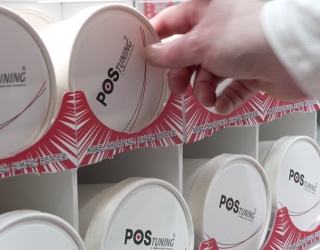Consumers like to reap the benefits of discounts immediately (not later), according to a new study in the Journal of Consumer Research. Consumers enjoy discounted products much less if they have to wait for them.
"Price promotions are common in the marketplace. For consumers, these promotions translate into real economic savings, guide buying decisions, encourage trial of new products, and make consumers feel smart and good about themselves," write authors Leonard Lee (Columbia University) and Claire I. Tsai (University of Toronto). But sometimes discounts backfire, especially if consumers need to wait to enjoy the product.
The authors examined how discounts influence pleasure-related consumption experiences. They found that discounts generally make consumers happier. But they also found that paying a lower price for a product reduces the need to justify the expenditure, which causes people to pay less attention during consumption, dampening enjoyment. The relative strength of these opposing forces depends on when the product is consumed after payment—right away or after a delay.
The authors conducted four experiments involving real spending and consumption, using a variety of products (chocolates, music, orange juice) and different durations of consumption delay. In one of the experiments, participants purchased one of two types of chocolate truffles at either the regular price of $1 or a discount of 50 cents. Half of the participants consumed the chocolate right away, and the other half waited for a week before consuming the chocolate. Consumers enjoyed the chocolate less when they had to wait a week.
"Our research provides new insight for better understanding the mixed effects of discounts on sales and loyalty, offering an explanation for why discounts may increase sales in the short run, but could have negative long-term effects on customer satisfaction and brand loyalty," the authors conclude.
Leonard Lee and Claire I. Tsai. "How Price Promotions Influence Postpurchase Consumption Experience over Time." Journal of Consumer Research: February 2014. For more information, contact Leonard Lee or visit http://ejcr.org/.
Source: Journal of Consumer Research




